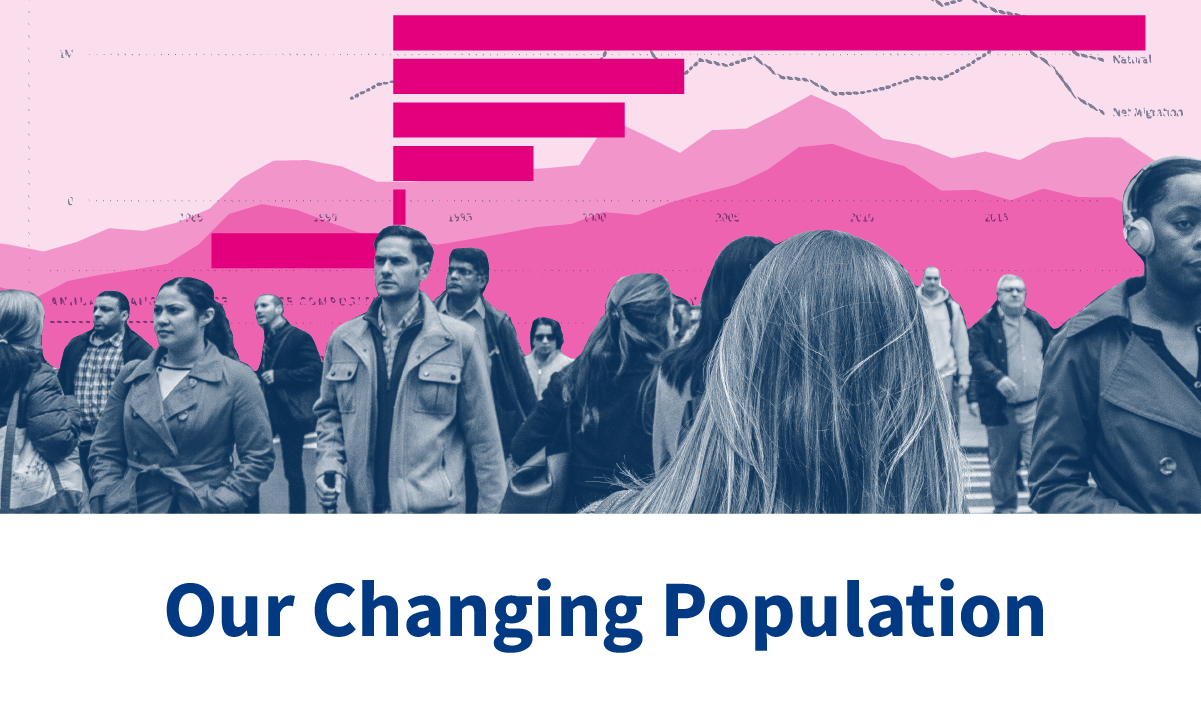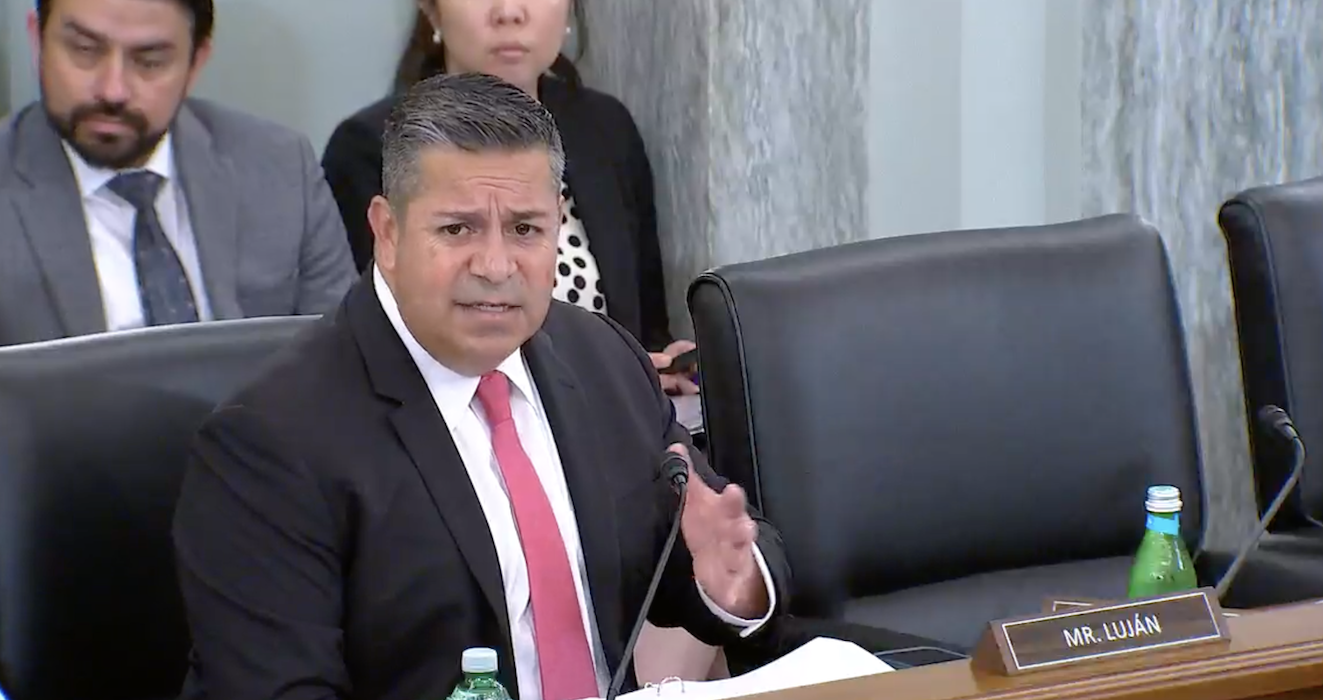
What’s New
California remains the nation’s largest state by far. Yet Texas is mounting a very strong second, and with a growth rate is more than two-and-a-half times that of the Golden State.


We’re almost a month out from the California Broadband Summit (on June 5), which is part of the CalMatters Ideas Festival on June 5-6, 2024, in Sacramento.
With so many broadband conferences (including one this week; see below), perhaps the question is worth asking: Why California?
California Broadband Summit
The event in Sacramento on Wednesday, June 5 is part of the CalMatters Ideas Festival on June 5-6, 2024.

In a nation in which some make a sport of characterizing our nation’s population centers and dynamic hubs as either “red” or “blue” states (e.g. Texas vs. California), it’s inevitable that state-specific issues will rise to the forefront.
California remains the nation’s largest state by far, with a 2020 population of 39,538, 223 (although some projections have that dipping to 38 million, post-pandemic).
Yet Texas is mounting a very strong second, with 29,145,505. And its growth rate is more than two-and-a-half times that of the Golden State: At 6.1%, California’s grown in the 2010s as distinctly anemic compared, for example, with Texas’ 15.9%.
California’s Population
Growth in the nation’s most populous state has slowed notably in the 21st century, with recent years bringing a drop in population due to higher deaths, lower births, and changes in migration. More than half of Californians under 24 are Latino while more than half of Californians 65 and older are white.

From 2010 to 2020, California’s population grew by 5.8% (or 2.4 million), according to decennial census counts. This was slower than the rate of growth in the rest of the nation (6.8%), leading to the loss of a seat in the US House of Representatives for the first time in California’s history.
Texas population by year, county, race, & more
The ages, races, and population density of Texas tell a story. Understand the shifts in demographic trends with these charts visualizing decades of population data.

Texas’s population increased 12 out of the 12 years between year 2010 and year 2022. Its largest annual population increase was 1.9% between 2014 and 2015. Between 2010 and 2022, the state grew by an average of 1.5% per year.
But with two of America’s strongest industries: Information technology and entertainment, tethered to the Pacific Coast, California remains an undeniable powerhouse – even if the state’s problems are often seem prominently on full display.
The program for the California Broadband Summit acknowledges both the leadership role – in the U.S. and globally – played by the state, while also giving a nod to finding solution for some of its challenges.
Among the topics considered in the program include:
Panel 1: The California Broadband Moment
As billions flood into broadband development nationwide, California is riding high on this wave, netting $1.86B from the government’s flagship Broadband Equity, Access and Deployment Program.
Interlude: Fixing Broadband Affordability and Digital Equity
We’ll hear advocates with their ears to the ground address a key issue: With the potential demise of the federal government’s Affordable Connectivity Program, how will the Golden State react to the crisis in affordability?
Panel 2: California’s Pathbreaking Middle Mile Program
In 2021, California unanimously passed SB 156, earmarking a $6 billion broadband investment to bridge the statewide digital divide. More than half of the funds are funneled towards building open-access, state-owned middle mile networks with high capacity fiber.
Panel 3: California’s Cost to Build
With one of the country’s most extensive highway networks, California must also wrangle with the prickly issue of broadband right-of-way, which often drive up the cost of deployment.
Panel 4: Net Neutrality and Privacy
While federal net neutrality rules hang in limbo, California has long upheld its own law regarding the equal treatment of data, as well as its state-leading law on internet privacy.
The California Broadband Summit page will be frequently updates with panelists, moderators and sponsors for the event.
Part of the CalMatters Ideas Festival
During the event on June 5-6, we’re also extremely exited to be partnering with CalMatters, which is:
a nonpartisan and nonprofit news organization bringing Californians stories that probe, explain and explore solutions to quality of life issues while holding our leaders accountable. We are the only journalism outlet dedicated to covering America’s biggest state, 39 million Californians and the world’s fifth largest economy.
About Us CalMatters
CalMatters is dedicated to explaining California politics and policy through award-winning, nonpartisan journalism.

Don’t miss the opportunity to register to attend the California Broadband Summit.
Broadband news last week
Among the top broadband stories last week were reports from the major telecoms during earning season:
Last week saw a lot of drama around the Affordable Connectivity Fund, both in Congress:
GOP Leaders Remain Skeptical Amid Push for ACP Funding
Sen. Ben Ray Luján signaled his USF working group is looking to fold ACP into the fund.

And out of Congress:
Supporters Rally for Affordable Internet Access through ACP
A U.S. senator, FCC commissioners, and a White House official rallied alongside public interest and industry groups for the subsidy program.

What are the next steps for BEAD? We’re finally getting to the point where more states are entering into their challenge process:
Kansas and West Virginia Receive BEAD Volume 2 Approval
The states will have one year to award subgrants with their allocations.

BEAD Roundup: Seven More Challenge Portals Open
That makes 10 open challenge windows, plus 18 states finished with the first phase of the process.

Additional developments on spectrum authority:
Wireless Providers, Others, Disagree on Allocating Spectrum Without Auction Authority
Carriers like AT&T want temporary licenses, while smaller providers and think tanks pushed for spectrum sharing.

Many unexpected voices are weighing in on the Federal Communications Commission’s move to ban bulk billing:
UTOPIA Fiber Urges FCC Not to Ban Bulk Billing
The pushback on the FCC’s plans to ban bulk billing has been substantial, with resistance coming from industry but also from minority, civil rights, and educational groups.

And don’t miss the many Expert Opinions available exclusively in Broadband Breakfast, including this one, “To BEAD or Not to BEAD,” by Nokia’s Lori Adams.
To BEAD or Not to BEAD? For Rural Providers, the Time to Decide is Now
Are you prepared to watch a competitor bring fiber optic infrastructure into your service area?

Got an Expert Opinion to share? Email commentary@breakfast.media.
Broadband Communities during the week ahead
This week marks the Broadband Communities Summit just outside of Houston, Texas. The event is one o the leading gathering points for the fiber broadband industry. See some of what we’re looking forward at the event here:
What we’re looking forward to at Broadband Communities | The Broadband Community
At one of the leading gathering points for the fiber broadband industry, we’re looking for insight into BEAD, Managed Wi-Fi, Investment and Digital Equity The Broadband Communities Summit that begins tomorrow here at The Woodlands near Houston, Texas,…
Have a great week!
Drew Clark
Broadband Breakfast
drew@breakfast.media


